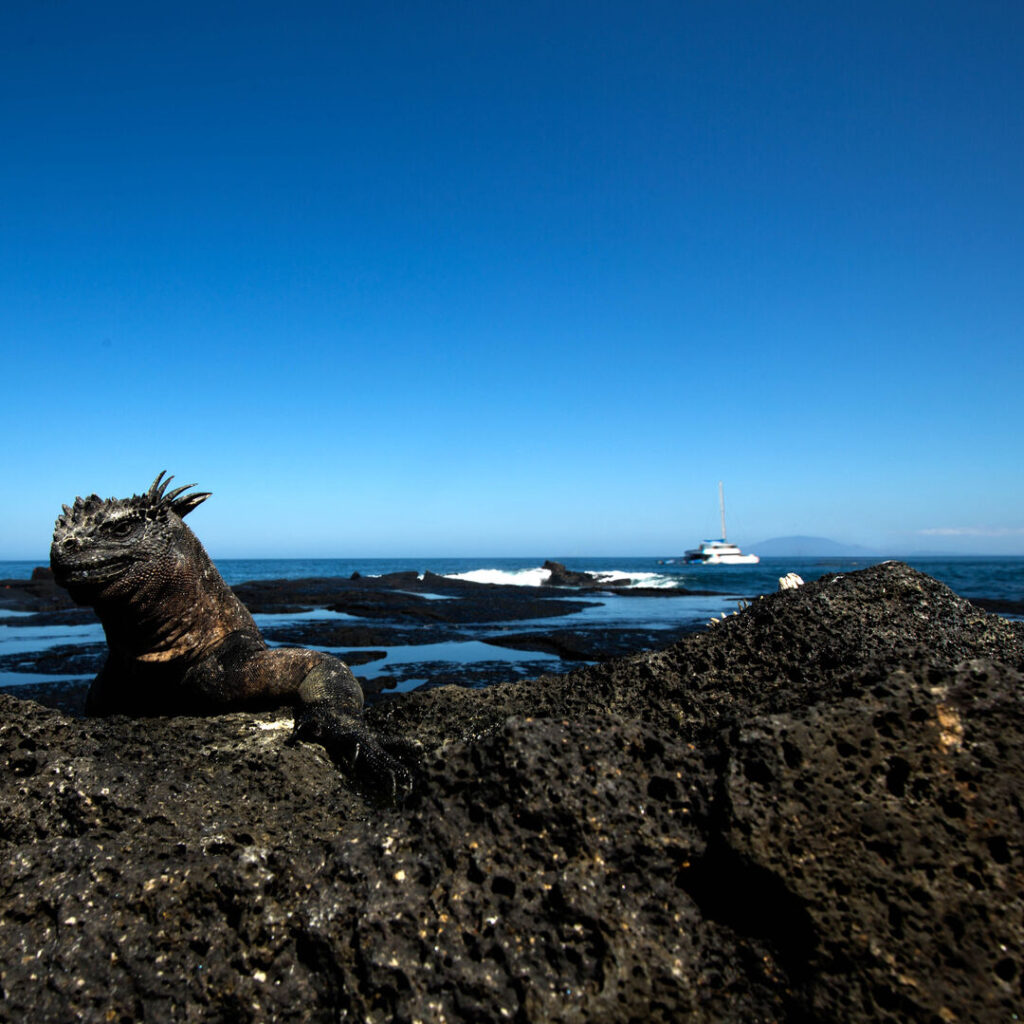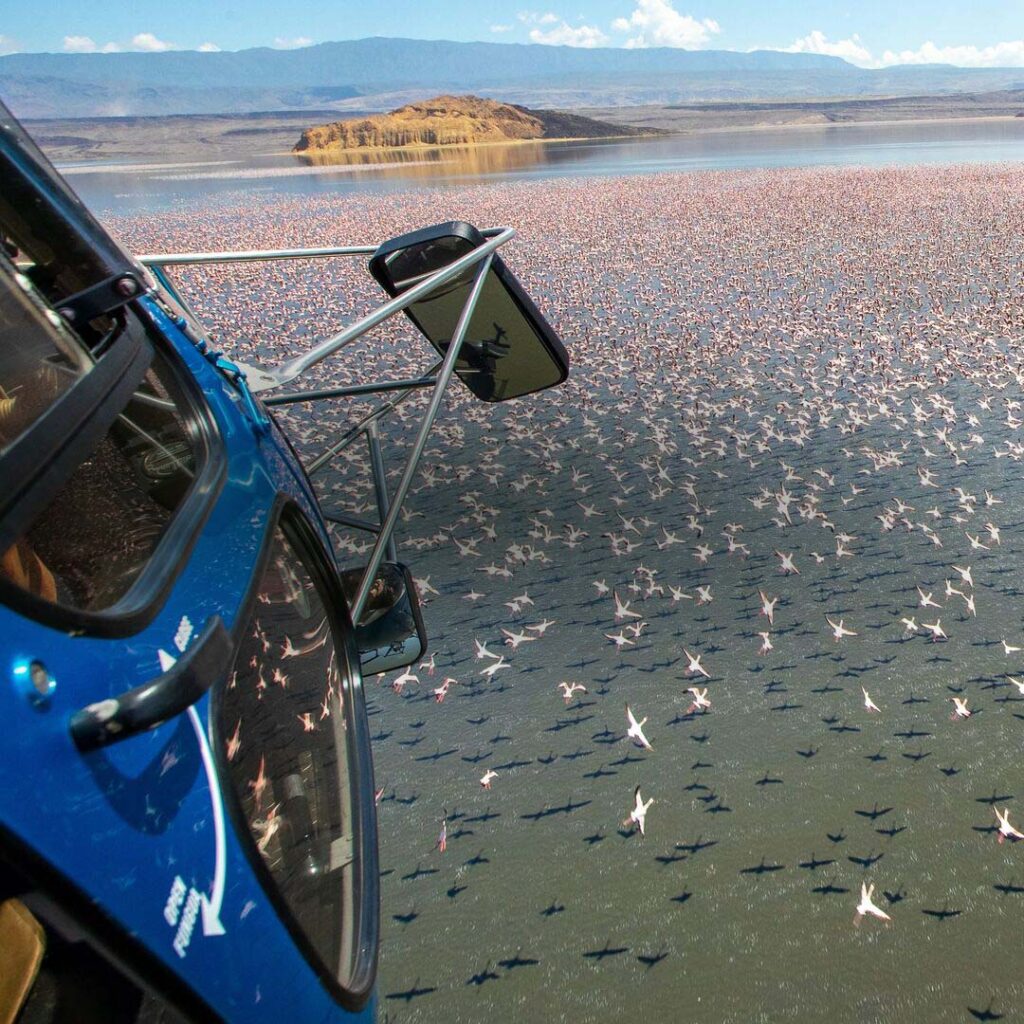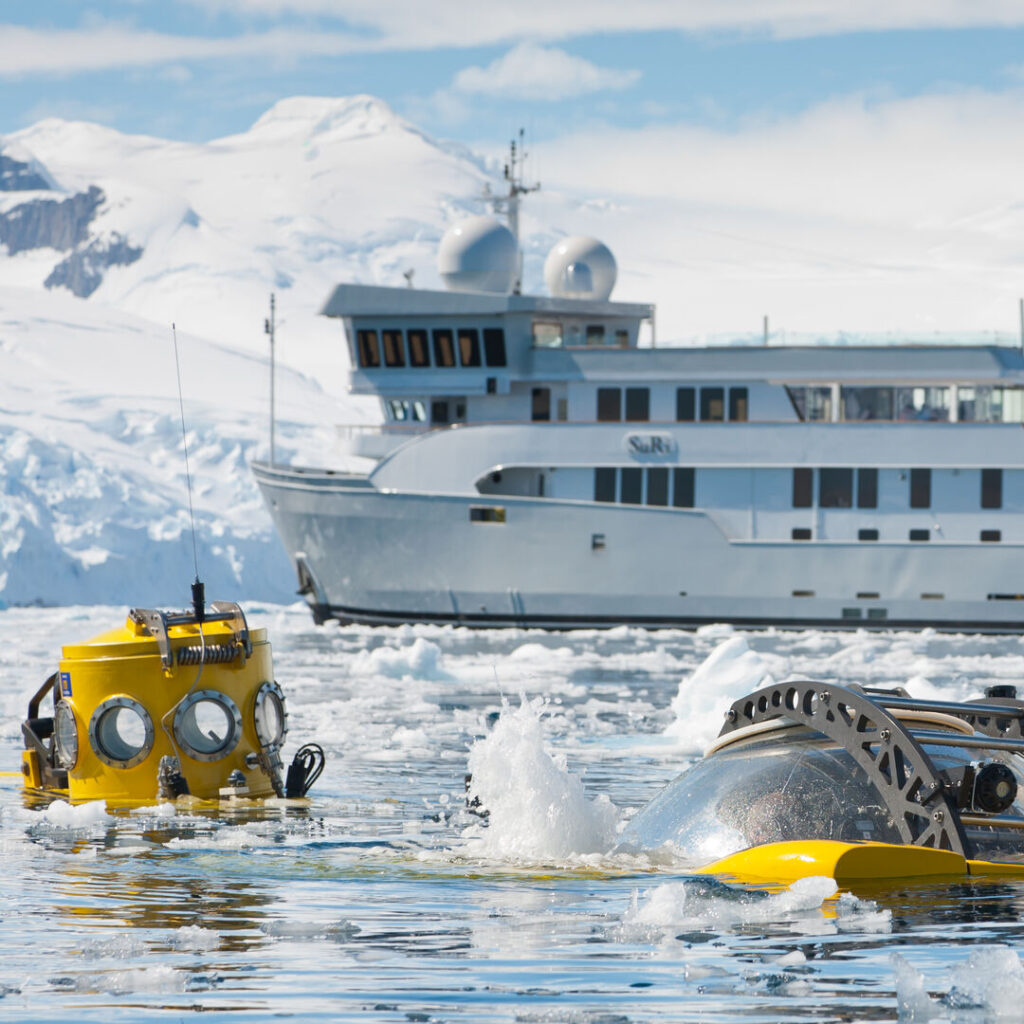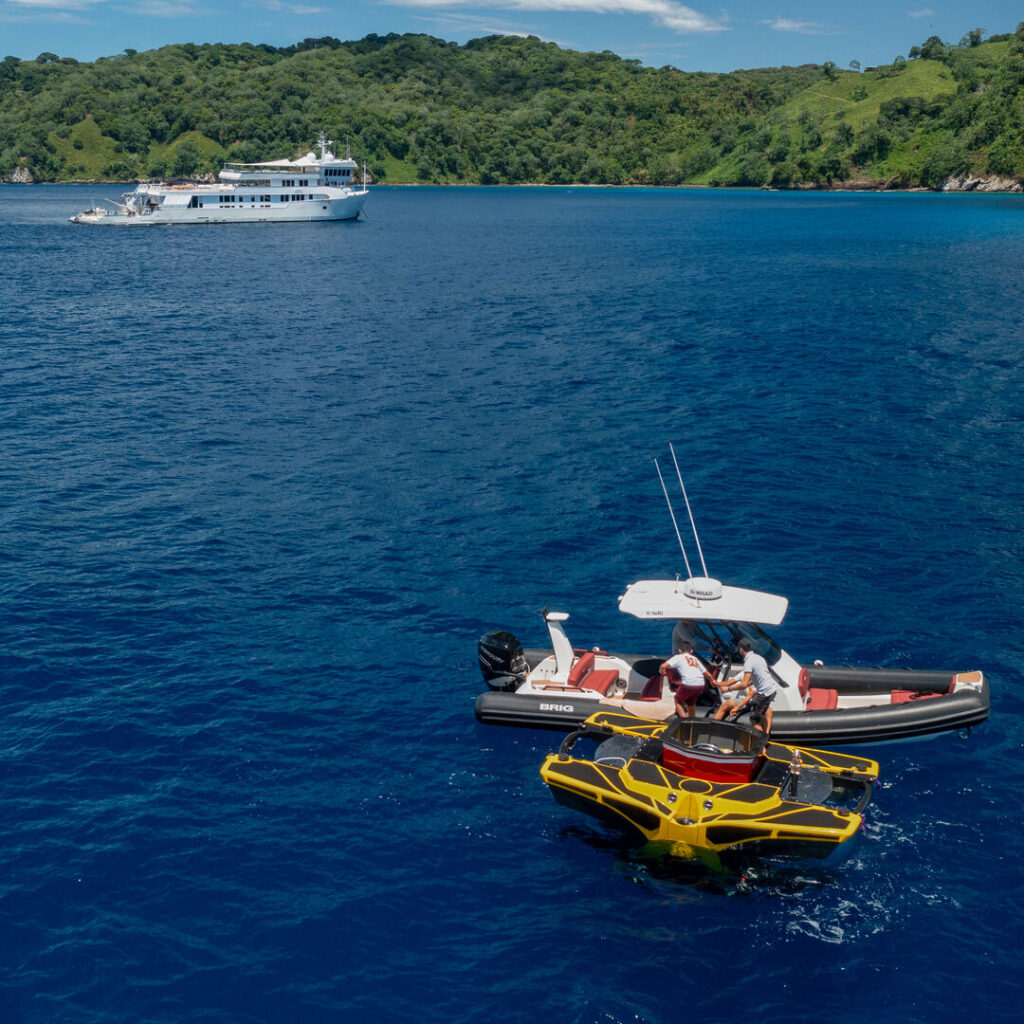Travel with access to transformative projects
Wherever your passions lie, we’ve got the expert contacts, authority and track record to ensure that your travel makes a genuine difference. That could be rehoming giant tortoises by heli, tagging sharks with the whole family or even discovering a new species of killer whale – all of which have taken place on our trips.
Indeed, we’ve organised everything from scientific missions alongside Antarctic yacht charters to year-long, intercontinental sabbaticals visiting philanthropic projects behind the scenes.
That’s without mentioning the millions raised for environmental causes and that we were among the first to ensure that all our trips are carbon neutral.
All images and video on this page were taken on Cookson Adventures trips.

Cookson Adventures has become known for placing conservation at the heart of its extraordinary journeys. Now, the experiential travel brand has made a ground-breaking marine research project possible, helping shine a light on a type of killer whale previously unknown to science.
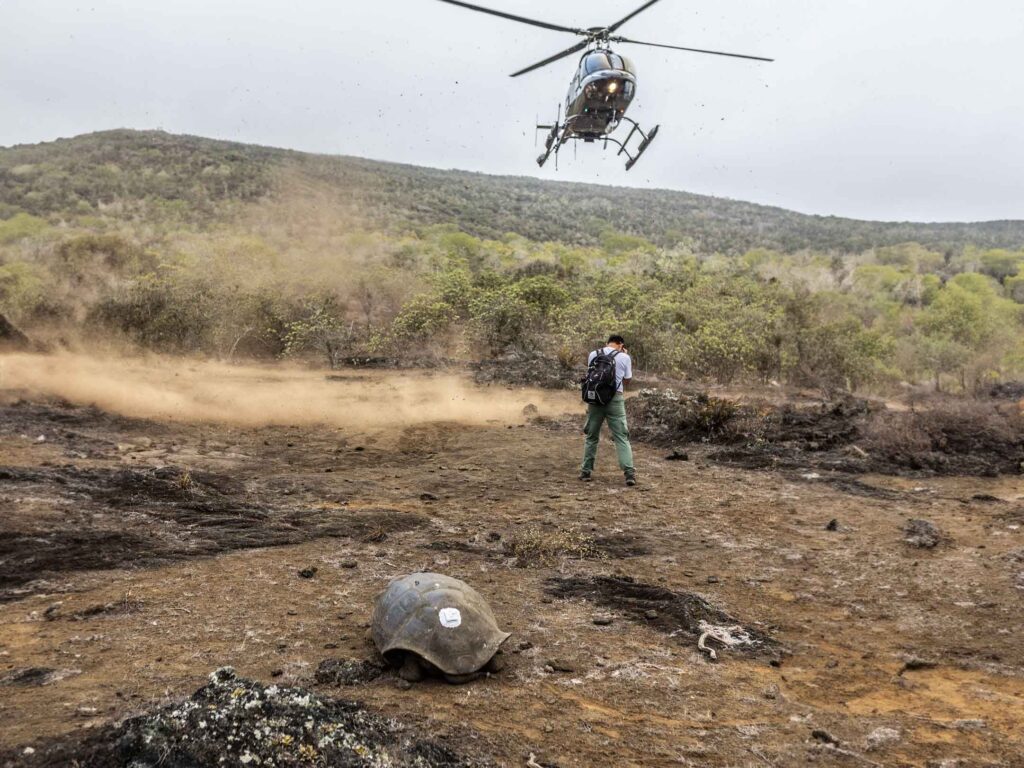
Doing genuine good
Impactful projects
We’ve got the track record in due diligence to ensure you’re contributing to genuinely worthwhile projects. That could be using heli hours to rehome endangered species. Bringing along scientists to conduct research in a region they wouldn’t otherwise have access to. Or, building tribal accommodation for clients to stay in and donating it to the community.
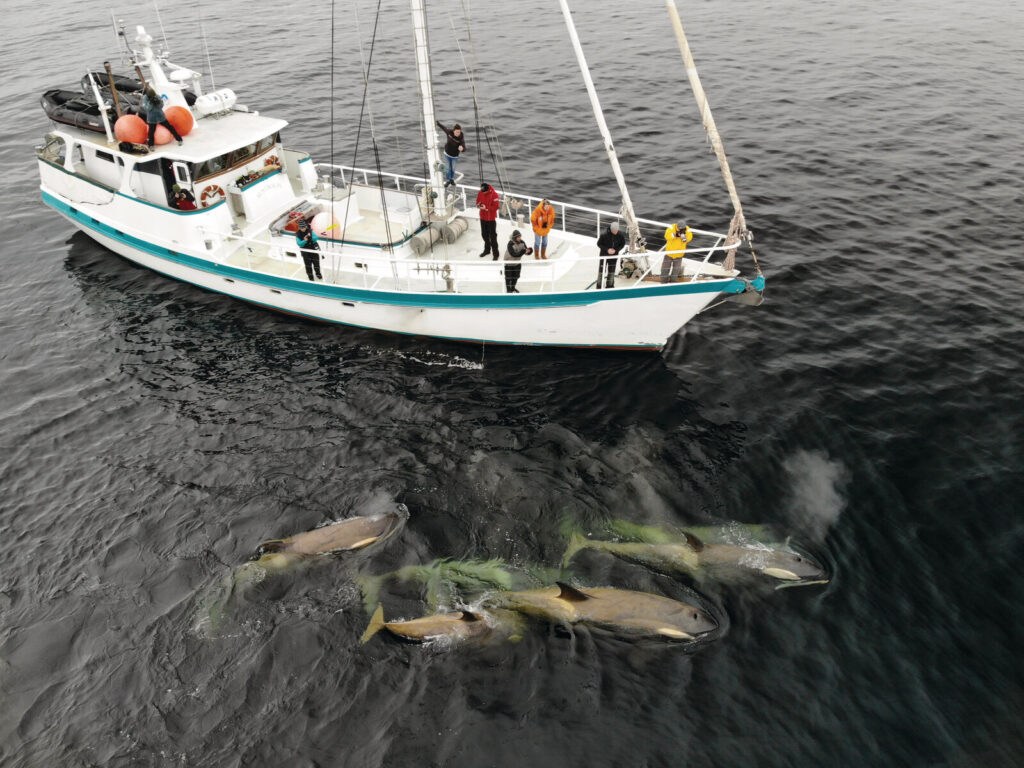
Insider access
Behind the scenes
By engaging with conservationists, we can bring you behind the scenes. Often, that means access to regions or projects that are otherwise off limits, whether that’s travelling to untouched islands to assist in tagging sharks, setting up a bespoke mobile camp in a unique location or learning from national park directors on how they manage conservation strategy.
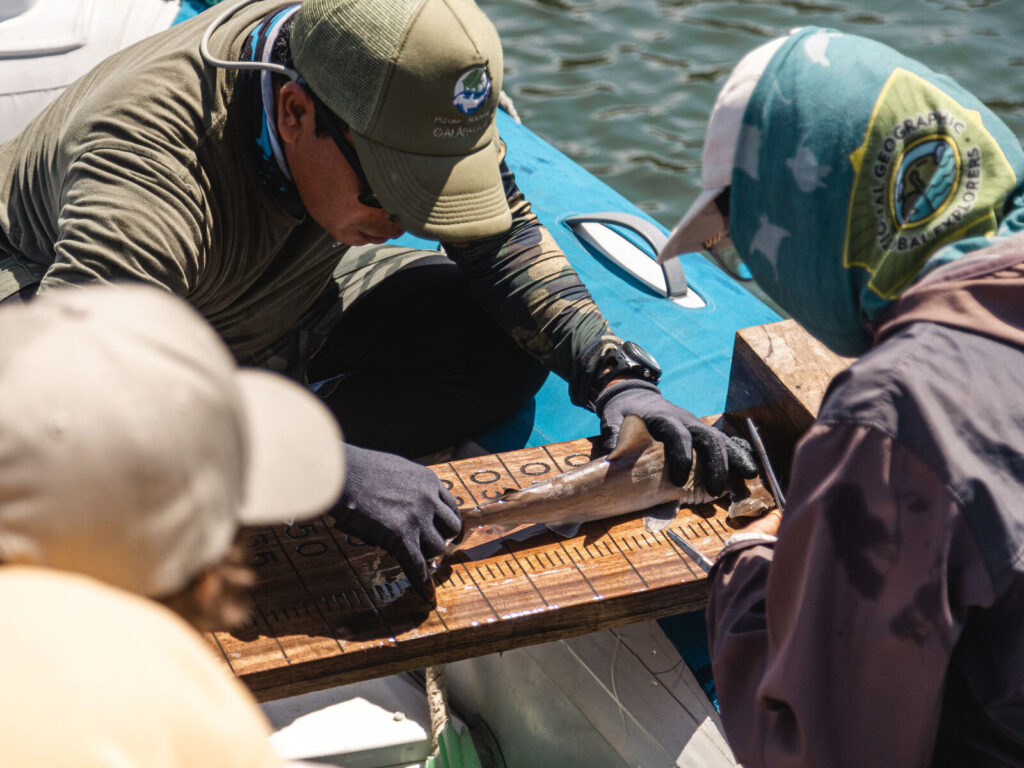
Tailored to you
Causes close to your heart
We’ll ensure that you’re engaged with projects close to your heart. For some of our clients that’s meant spending time with leading marine biologists studying shark behaviour patterns while others have wanted to contribute to and spend time at community-run elephant orphanages in rural Africa.
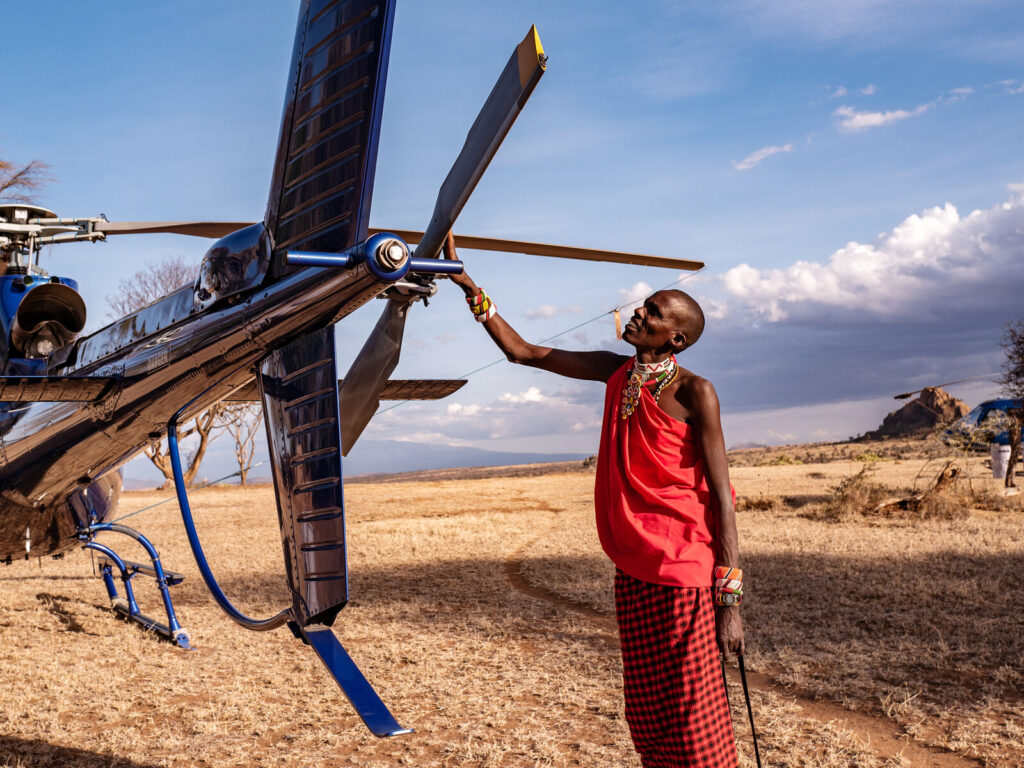
People
Empowering humans
Whether it’s supporting traditional communities to preserve their ancestral lands, discovering secret locations with local contacts or even providing eyeglasses for remote tribes, we have a long history in empowering and building authentic relationships with people in the regions we operate in.
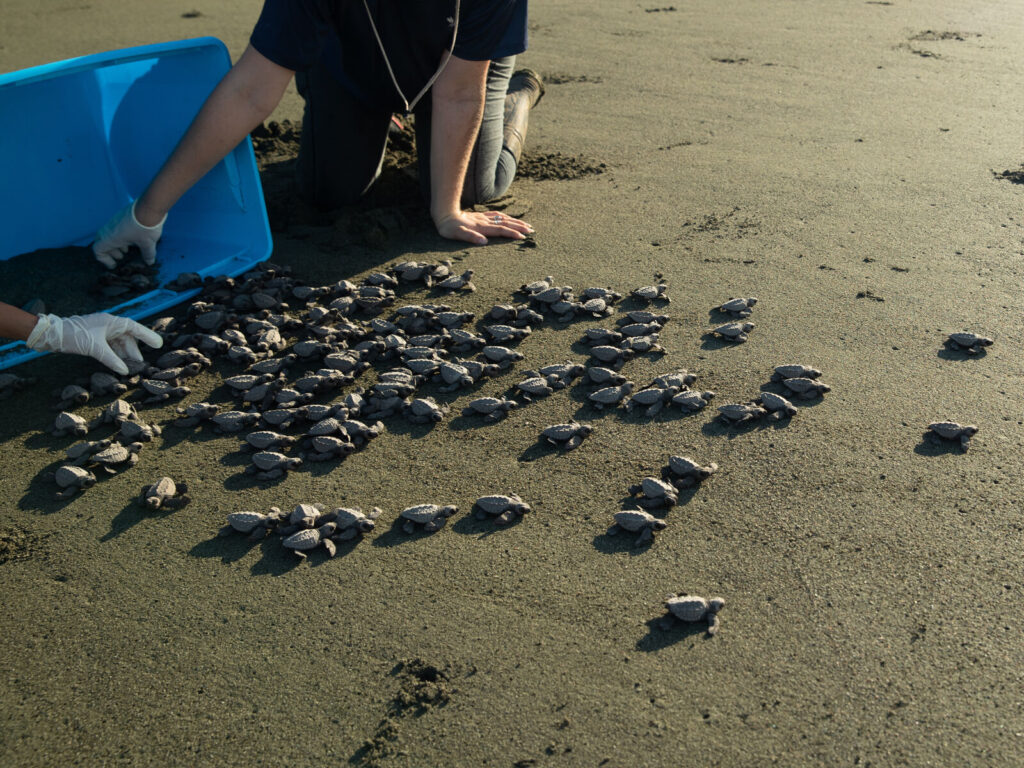
Educational
Transformative travel
From unique hands-on learning for your children to multi-month sabbaticals moving between conservation projects, we’ll ensure that you’re constantly learning. That might be receiving updates on the manta your child tagged for years to come or discovering grassroots projects involved in rewilding Argentina.
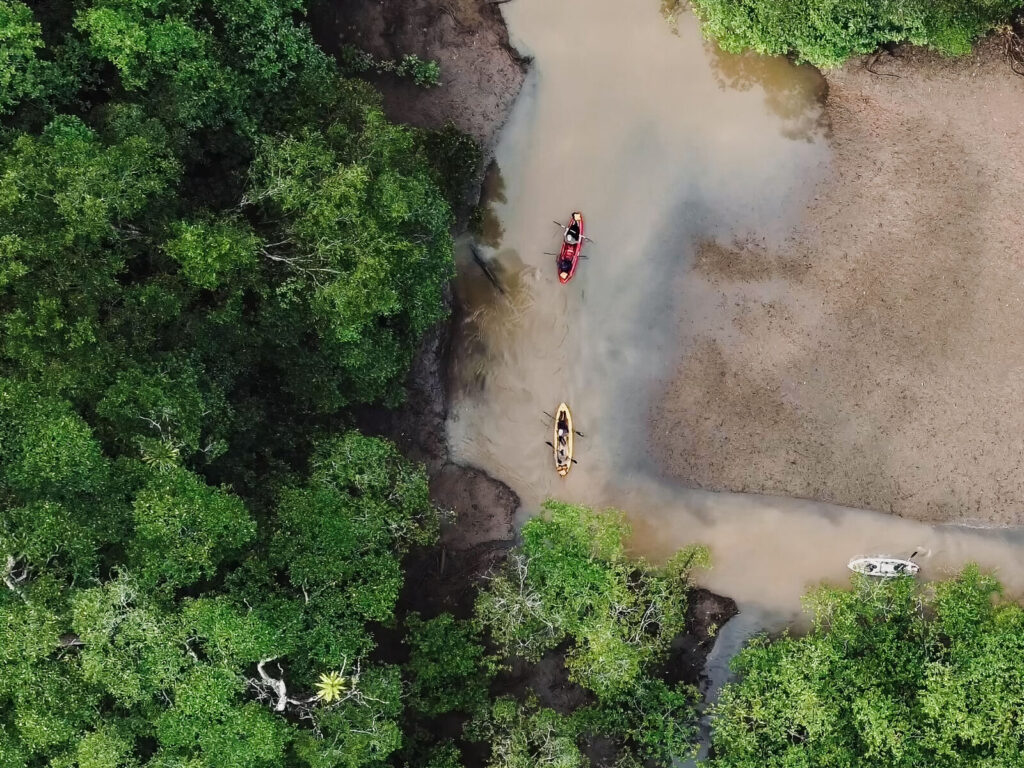
Authentic carbon neutrality
Net zero
Not only have we created a bespoke carbon calculator to ensure all of our trips are fully offset, but we support projects that impact the destinations you’re travelling in, from building wells to negate emissions associated with water transport or planting trees in deforested jungles that we’ve explored.
A few of our conservation projects
Galápagos conservation
Heli relocation & geotagging
Given our close working relationship with the national park, we’ve contributed widely to the islands’ conservation on our clients’ trips. Our guests have experienced environmental work up close, including the measurement of juvenile hammerheads and geotagging of giant tortoises. Then, with none stationed in the archipelago, we’ve brought in helicopters to help the national park relocate hundreds of giant tortoises to safer environments and build a research station where baby pink iguanas were discovered for the first time. And, that means our clients were along for the ride, even witnessing a spectacular volcanic eruption after the helis were used to safely evacuate park scientists, as covered by The New York Times.
Rhino translocation
Kenya
In 2022, we organised one of Kenya’s largest rhino translocations. Working alongside government authorities and top conservationists, we moved 14 endangered individuals. As always we matched this project with our clients’ passions, who got involved on the frontline, lending a hand to monitor the rhinos’ vitals and witness the operation up-close. Working over several weeks, we mobilised a team that numbered in the hundreds, from vets and logistics workers to environmentalists and helicopter pilots to track and locate the population.
Seabed mapping
Around the world
We’ve organised superyacht trips where few – if any – have been before. And, the underwater mapping that has helped us identify new dive sites and enrich our clients’ experience has also contributed brand-new data to scientists, governments and global projects to map the entire ocean floor. So, not only have we discovered a Roman shipwreck, but we’ve provided new data for university research programmes from Italy to Costa Rica that can ultimately lead to the regions’ protection. We’ve also mapped WWII wrecks in the Solomon Islands and shared data with Fijian chiefs seeking to improve navigational safety.
Orca species discovery
Antarctica & Patagonia
As part of our client’s yacht trip to Antarctica, we brought along a team of marine scientists in search of a new subspecies of killer whale. Working on a research vessel alongside our client’s superyachts, they were able to follow rumoured sightings to identify the type D orca as a new species for the first time, including taking a biopsy. Not only was our client able to realise their passion for marine conservation, but they were able to learn from and support truly cutting-edge research. This will likely be the last large mammal to be discovered.
Shark tagging
Cocos Island
Over several trips to Costa Rica’s Cocos Island, we’ve brought research vessels alongside superyacht charters to study its extraordinary shark aggregations. Together with marine biologists, our guests were able to assist in tagging and monitoring everything from hammerheads to Galápagos and whale sharks. These satellite and acoustic trackers are helping gather vital location data on migratory patterns, ultimately to contribute to the protection of their habitat. The adults were inspired by talks and by heading out on tagging dives with the researchers, while children delighted in getting hands on, measuring juvenile sharks, recording their details and helping apply tags.
